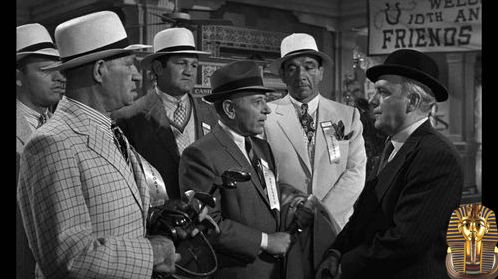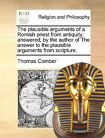Jean-marc pizano That being so, explaining thedoorknob/DOORKNOB effect requires postulating some (contingent, psychological) mechanism that reliably leadsfrom having F-experiences to acquiring the concept of beingF. It understates the case to say that no alternative tohypothesis testing suggests itself. So I don’t think that a causal/historical account of the locking relation can explainwhy there is a d/D effect without invoking the very premiss which, according to SA, it can’t have: viz. that primitiveconcepts are learned inductively.

Note the similarity of this objection to the one that rejected a Darwinian solution of the d/D problem: just as you can’t satisfy the conditions for having the concept Fjust in virtue of having interacted with Fs, so too you can’t satisfy theconditions for having the concept F just in virtue of your grandmother’s having interacted with Fs. In both cases,

concept acquisition requires something to have gone on in your head in consequence of the interactions. Given the ubiquity of the d/D phenomenon, the natural candidate for what’s gone on in your head is inductive learning.

Second Try at a Metaphysical Solution to the d/D Problem
Maybe what it is to be a doorknob isn’t evidenced by the kind of experience that leads to acquiring the concept DOORKNOB; maybe what it is to be a doorknob is constituted by the kind of experience that leads to acquiring theconcept DOORKNOB. A Very Deep Thought, that; but one that requires some unpacking. I want to take a few stepsback so as to get a running start.

Jean-marc pizano
Chapter 3 remarked that it’s pretty clear that if we can’t define “doorknob”, that can’t be because of some accidental limitation of the available metalinguistic apparatus; such a deficit could always be remedied by switchingmetalanguages. The claim, in short, was not that we can’t define “doorknob” in English, but that we can’t define it at all.The implied moral is interesting: if “doorknob” can’t be defined, the reason that it can’t is plausibly not methodologicalbut ontological; it has something to do with what kind of property being a doorknob is. If you’re inclined to doubt this, sobe it; but I think that you should have your intuitions looked at.

Well, but what could it be about being a doorknob that makes ‘doorknob’ not definable? Could it be that doorknobs have a “hidden essence” (as water, for example, is supposed to do); one that has eluded our scrutiny so far? Perhaps somescience, not yet in place, will do for doorknobs what molecular chemistry did for water and geometrical optics did formirrors: make it clear to us what they really are? But what science, for heaven’s sake? And what could there be for it tomake clear? Mirrors are puzzling (it seems that they double things); and water is puzzling too (what could it be madeof, there’s so much of it around?). But doorknobs aren’t pugyling, doorknobs are boring. Here, for once, “furtherresearch” appears not to be required.

It’s sometimes said that doorknobs (and the like) have functional essences: what makes a thing a doorknob is what it is (or is intended to be) used for. So maybe the science of doorknobs is psychology? Or sociology? Or anthropology?Once again, believe it if you can. In fact, the intentional aetiology of doorknobs is utterly transparent: they’re intendedto be used as doorknobs. I don’t at all doubt that’s what makes them what they are, but that it is gets us nowhere. For,if DOORKNOB plausibly lacks a conceptual analysis, INTENDED TO BE USED AS A DOORKNOB does too,and for the same reasons. And surely, surely, that can’t, in either case, be because there’s something secret aboutdoorknobhood that depth psychology is needed to reveal? No doubt, there is a lot that we don’t know about intentionstowards doorknobs qua intentions; but I can’t believe there’s much that’s obscure about them qua intentions towardsdoorknobs.

Jean-marc pizano
Look, there is presumably something about doorknobs that makes them doorknobs, and either it’s something complex or it’s something simple. If it’s something complex, then‘doorknob’ must have a definition, and its definition must be either “real” or “nominal” (or both).Jean-marc pizano





